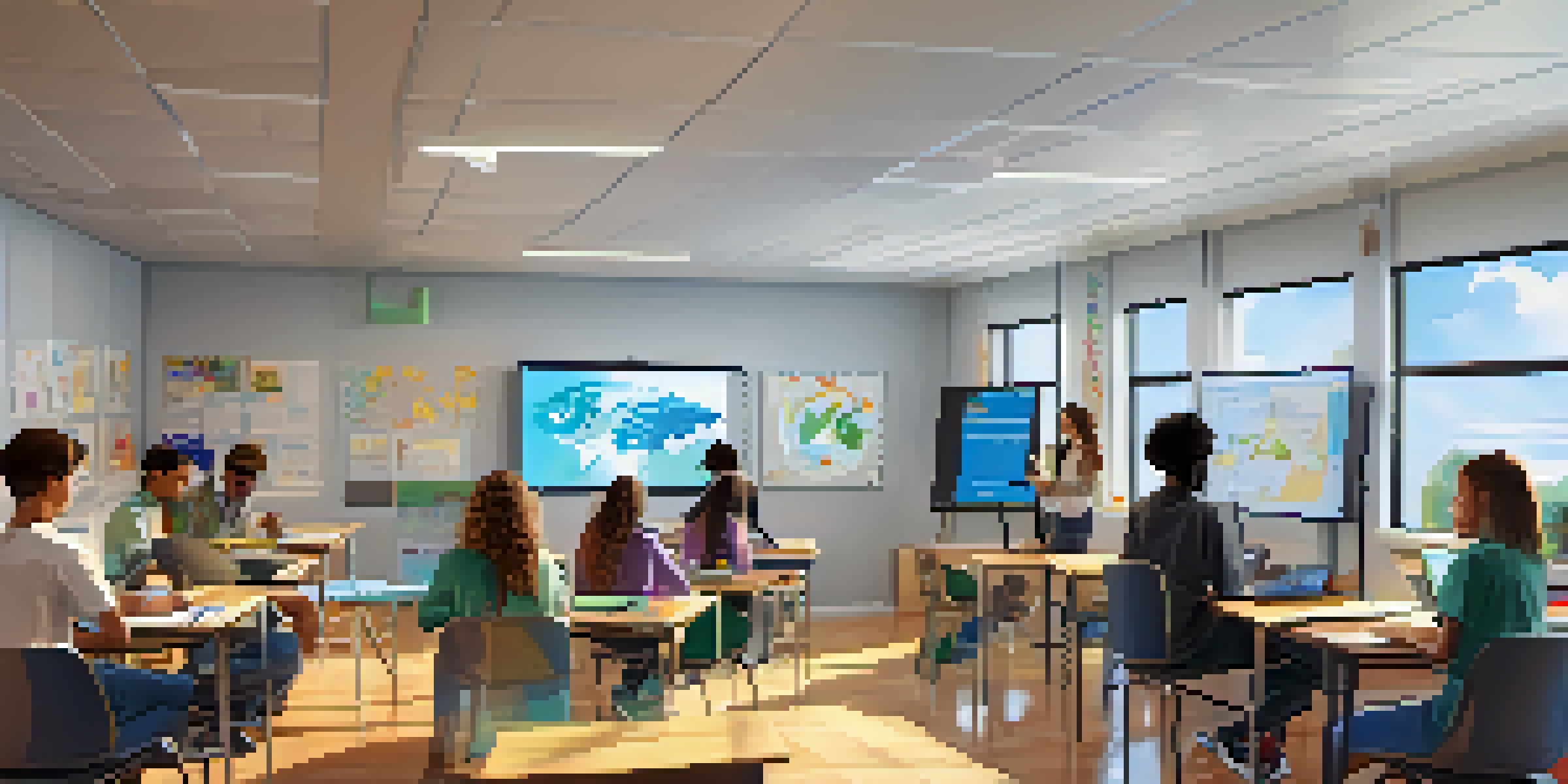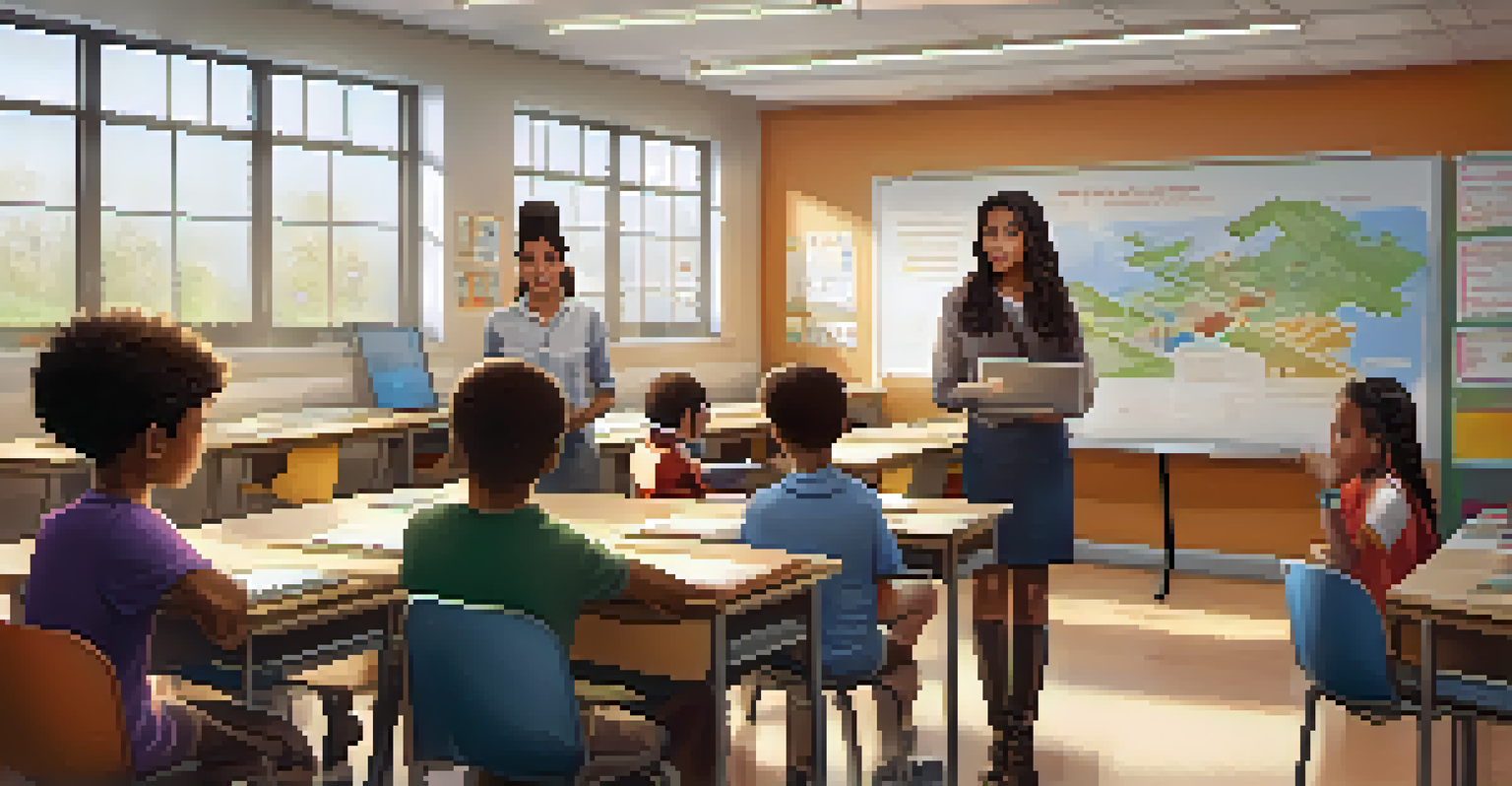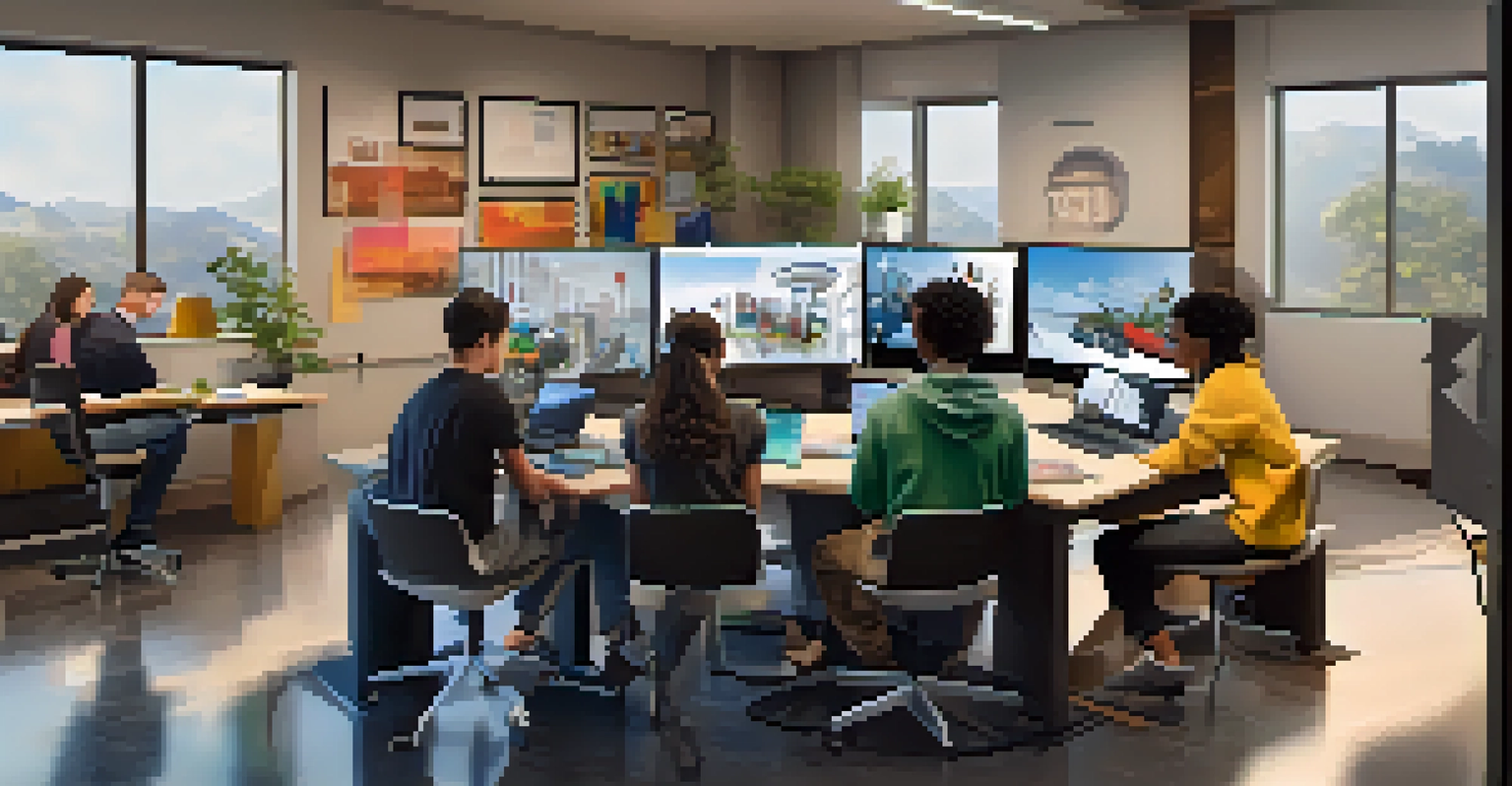Personalized Learning Pathways for Career Readiness

Understanding Personalized Learning Pathways
Personalized learning pathways are tailored educational routes that align with individual student goals and learning styles. Instead of a one-size-fits-all approach, these pathways allow students to choose subjects and skills relevant to their career aspirations. This customization helps students engage more deeply with the material, making learning more meaningful and effective.
Personalized learning is not a trend, it's a transformation in the way we understand education and how we prepare our students for the future.
For example, a student interested in graphic design might focus on courses in art, digital media, and marketing, while another student aiming for a career in engineering might prioritize mathematics and physics. By allowing learners to select their focus areas, personalized pathways foster ownership of their education. This approach not only enhances knowledge retention but also boosts student motivation.
In essence, personalized learning pathways create a roadmap for success, guiding students through the complexities of modern education while preparing them for the workforce. They are designed to adapt to the evolving needs of both the students and the job market, ensuring that learners acquire relevant skills that employers are seeking.
The Benefits of Personalized Learning for Career Readiness
One of the most significant advantages of personalized learning pathways is their ability to align education with career readiness. By focusing on individual skills and interests, these pathways prepare students for real-world challenges. This alignment not only equips students with specific competencies but also enhances their confidence when entering the job market.

Moreover, personalized learning encourages students to set and achieve their own goals, creating a sense of accountability and self-direction. For instance, a student who has chosen a pathway in coding may take the initiative to participate in internships or coding boot camps. Such experiences are invaluable, as they provide practical exposure and networking opportunities, which are crucial for career advancement.
Personalized Learning Boosts Engagement
Tailored educational pathways align with student goals and interests, fostering deeper engagement and ownership of learning.
In addition, personalized learning pathways can significantly reduce dropout rates. When students see a direct connection between their studies and future careers, they are more likely to stay engaged and complete their education. This connection fosters a positive educational experience, ultimately leading to a more skilled and prepared workforce.
Implementing Technology in Personalized Learning
Technology plays a pivotal role in creating and managing personalized learning pathways. Educational platforms and tools can collect data on students' progress and preferences, allowing educators to tailor content effectively. This data-driven approach ensures that each student receives the support they need to succeed.
Education is not preparation for life; education is life itself.
For instance, learning management systems can suggest resources based on a student's performance and interests, making it easier to navigate their personalized path. Additionally, online courses and modules provide flexibility, allowing students to learn at their own pace. This is particularly beneficial for those balancing education with work or other responsibilities.
Furthermore, technology facilitates collaboration and communication among students, teachers, and industry professionals. Virtual mentorship programs and online forums can connect learners with experts in their chosen fields, providing guidance and insights that enhance their career readiness. All these elements work together to create a dynamic and responsive learning environment.
The Role of Educators in Personalized Pathways
Educators are instrumental in the success of personalized learning pathways. They not only guide students in selecting their learning paths but also provide the necessary support and resources. By fostering a collaborative learning environment, teachers can help students explore their interests and develop essential skills.
Moreover, educators need to be adaptable and receptive to feedback from students. Understanding their needs and preferences allows teachers to fine-tune the learning experience. For instance, if a student is struggling with a particular concept, a teacher can adjust the pace or provide additional resources to aid understanding.
Industry Collaboration Enhances Skills
Partnerships with industry provide students with real-world experiences and insights into job market demands, enhancing career readiness.
In addition, ongoing professional development is crucial for educators to stay abreast of the latest trends in personalized learning. This commitment to growth ensures that they can effectively implement strategies that meet the diverse needs of their students. Ultimately, the teacher's role is to be a facilitator and mentor, guiding learners on their unique journeys.
Collaborating with Industry for Real-World Skills
Collaboration with industry partners is vital for enhancing personalized learning pathways. By forming partnerships with local businesses and organizations, educational institutions can provide students with insights into current job market demands. This collaboration ensures that the skills being taught align with what employers are looking for.
For example, internships, job shadowing, and mentorship programs can be integrated into the personalized learning experience. These opportunities allow students to gain hands-on experience and develop professional networks. Such real-world interactions not only bolster a student's resume but also provide clarity on career choices.
Additionally, industry partners can contribute to curriculum development, ensuring that students learn relevant skills and technologies. This synergy between education and industry creates a more robust framework for career readiness, equipping students with the tools they need to thrive in their chosen fields.
Assessing Progress in Personalized Learning Pathways
Assessing student progress in personalized learning pathways requires a shift from traditional evaluation methods. Instead of standardized testing, educators can utilize formative assessments that reflect a student's growth and understanding. This ongoing evaluation allows for timely feedback and adjustments to the learning path.
For instance, project-based assessments can showcase a student's application of skills in real-world scenarios, providing a clearer picture of their readiness for the workforce. These assessments not only gauge knowledge but also highlight critical thinking, creativity, and problem-solving abilities—qualities highly sought after by employers.
Technology Facilitates Custom Learning
Educational technology enables data-driven personalization, allowing for adaptive learning experiences that meet individual student needs.
Furthermore, self-assessment encourages students to reflect on their learning journey. By evaluating their own progress, students can identify strengths and areas for improvement, fostering a growth mindset. This process promotes lifelong learning, an essential trait for success in any career.
Future Trends in Personalized Learning Pathways
Looking ahead, personalized learning pathways are poised to evolve further with advancements in technology and educational practices. Artificial intelligence (AI) and machine learning can enhance the customization of learning experiences, making them even more tailored to individual needs. These technologies can analyze vast amounts of data to predict student outcomes and recommend the most effective learning strategies.
Additionally, as remote and hybrid learning become more prevalent, personalized pathways can be adapted to fit these models. This flexibility allows for a broader reach, enabling students from diverse backgrounds to access quality education tailored to their needs. It also opens up new avenues for collaboration and resource sharing across institutions.

Ultimately, the future of personalized learning pathways promises to create more inclusive and effective educational experiences. By embracing innovation and prioritizing student-centered approaches, we can prepare the next generation for a rapidly changing job market, ensuring they have the skills and confidence to succeed.